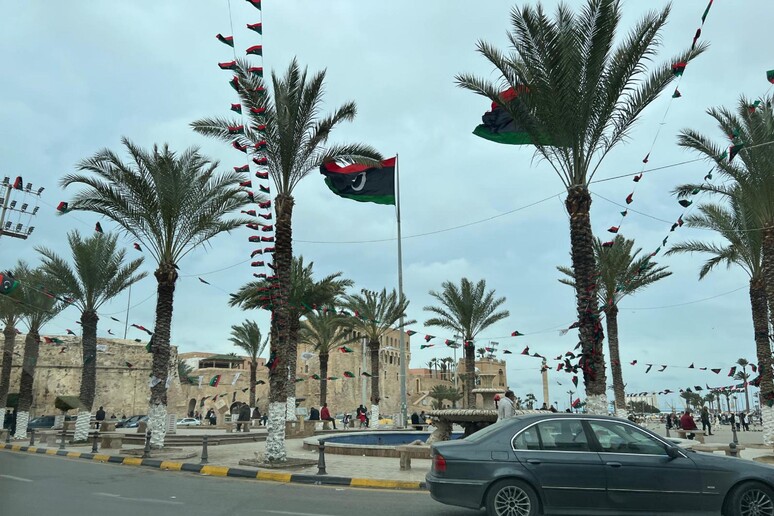A military flight bound for Libya, carrying a group of migrants slated for deportation: this is the secret plan that the Trump administration is reportedly preparing to implement.
As reported by The New York Times, this operation would mark an unprecedented escalation in the administration’s crackdown on illegal immigration, raising serious legal, diplomatic, and especially humanitarian concerns.
According to confidential sources, the plane could depart in the coming days. Although the identities and nationalities of the migrants have not been disclosed, the nature of their destination alone is cause for significant concern. Libya, torn apart by years of civil war, is considered one of the most dangerous places in the world.
The U.S. State Department explicitly advises against travel to the country, citing risks related to terrorism, crime, kidnappings, and unexploded landmines. In its latest annual human rights report, it described “harsh and potentially lethal conditions” for detained migrants, highlighting the absence of any legal safeguards. Organizations such as Amnesty International and the Global Detention Project have detailed the “horrific” and “inhumane” conditions in detention facilities, reporting instances of torture, sexual abuse including of minors, forced labor, and practices akin to slavery.
The implicit message of choosing Libya as a deportation destination is also troubling: the attempt to use repatriation to a war-torn country as a deterrent for future asylum seekers. Some international observers consider this a form of “punitive deportation.” The plan, still subject to potential legal or diplomatic obstacles, has been developed with extreme secrecy. The White House has declined to comment, while the Departments of State and Defense have not responded to requests for clarification.
This is not the first time the GOP leader has employed such strategies. Venezuelan migrants have been transferred to El Salvador, where they ended up in Cecot, a maximum-security prison designed for terrorists. Washington labeled them as members of violent gangs, invoking an 18th-century law, the Alien Enemies Act, to justify the measure, sparking controversy and a series of legal battles.
Other cases have involved deportations to Panama and Costa Rica, often without the migrants– originating from Iran, China, and other countries–knowing their destination. Some were held in makeshift facilities for days under precarious conditions. In these instances, U.S. authorities collaborated with regional partners without ensuring transparency or the protection of rights.
However, the choice of Libya is not unprecedented internationally; the idea of “externalizing” migrant management has been central to European policies for years and continues to gain support. Italy signed an agreement nearly a decade ago, continually renewed, with Libya to prevent migrant departures, fully aware of the dire conditions this entails for those trapped in the country, forced to pay money they don’t have amidst warlords, official and unofficial prisons, unlawful detentions, torture, rape, and forced labor.
The European Union has also signed agreements with Turkey and, more recently, Tunisia to manage migrants beyond its borders. The Italian government under Giorgia Meloni has been working for months to implement a migrant management plan in Albania. The United Kingdom attempted to send asylum seekers to Rwanda to await the outcome of their applications.
Some of these strategies have been halted by court opposition. For Trump, the idea of using Libya a country far from the United States as a deportation destination represents a further tightening of strategies. The North African state remains divided between two rival governments: one recognized by the United Nations in Tripoli and another, led by General Khalifa Haftar, based in Benghazi.
While the United States maintains formal relations only with the Tripoli government, the Republican administration has previously had cordial ties with Haftar, due to his control over more than 90% of Libya’s oil fields, primarily located in the east and south of the country. The Meloni government in Italy has also received General Haftar in Rome.
There is concern that deported individuals could find themselves trapped in a no-man’s-land, exposed to violence and abuse with no escape.












